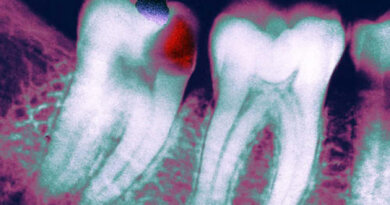COVID-19 Daily: Male Vulnerability, Semen Study
[ad_1]
What your doctor is reading on Medscape.com:
MAY 07, 2020 — Here are the coronavirus stories Medscape’s editors around the globe think you need to know about today:
Male Vulnerability Explained?
Researchers in Italy have made a fortuitous discovery that may explain why men are more likely to have severe outcomes in COVID-19 than are women. The potential explanation? Androgen.
While treating patients with prostate cancer using androgen deprivation therapy (ADT), the investigators observed that these men were much less likely to become infected with and die from COVID-19 than other groups, including patients with other cancer types.
The paper that, researchers say, is the first to suggest a link between ADT and COVID-19 was published online May 7 in Annals of Oncology.
The authors hypothesized that “androgen levels can facilitate coronavirus infections and increase the severity of symptoms, as has been seen in male patients,” lead researcher Andrea Alimonti, MD, PhD, Università della Svizzera italiana in Lugano, Switzerland, told Medscape Medical News.
Given that the effects of androgen receptor antagonists are reversible, the researchers suggest they could be used for a short time in patients infected with COVID-19.
Semen Study “Shy on Details”
COVID-19 may be present in the semen of patients with COVID-19, both those recovering and those with acute disease, according to results of a small study published online in JAMA Network Open.
However, several experts caution the researchers only tested for viral components and that the findings do not demonstrate infectivity.
“I am not aware of any reports of infection transmitting sexually, so the risk here, even if the study is verified at a larger scale, is very limited,” said Ian Jones, PhD, professor of virology, University of Reading, United Kingdom.
Other experts note that the published article is short on information about methodology and context.
“I’m not saying they are wrong, but they are shy on details,” Maureen Ferran, PhD, associate professor of biology, Rochester Institute of Technology, New York, told Medscape Medical News.
The First 100 Days of COVID-19
Just over 100 days after the US saw its first confirmed case of COVID-19 on January 20, the numbers are alarming, with 1.2 million confirmed cases and more than 70,000 deaths — and because testing is so limited, experts say the real tally is actually much higher, WebMD Health News reports.
[ad_2]
Source link



